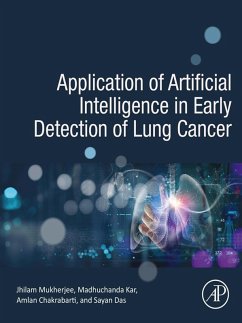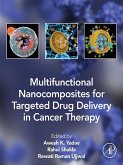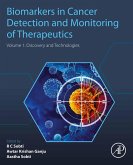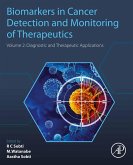Application of Artificial Intelligence in Early Detection of Lung Cancer presents the most up-to-date computer-aided diagnosis techniques used to effectively predict and diagnose lung cancer. The presence of pulmonary nodules on lung parenchyma is often considered an early sign of lung cancer, thus using machine and deep learning technologies to identify them is key to improve patients' outcome and decrease the lethal rate of such disease. The book discusses topics such as basics of lung cancer imaging, pattern recognition techniques, deep learning, and nodule detection and localization. In addition, the book discusses risk prediction based on radiological analysis and 3D modeling.This is a valuable resource for cancer researchers, oncologists, graduate students, radiologists, and members of biomedical field who are interested in the potential of AI technologies in the diagnosis of lung cancer. - Provides an overview of the latest developments of artificial intelligence technologies applied to the detection of pulmonary nodules - Discusses the different technologies available and guides readers step-by-step to the most applicable one for the specific lung cancer type - Describes the entire study design on prediction of lung cancer to help readers apply it to their research successfully
Dieser Download kann aus rechtlichen Gründen nur mit Rechnungsadresse in A, B, BG, CY, CZ, D, DK, EW, E, FIN, F, GR, HR, H, IRL, I, LT, L, LR, M, NL, PL, P, R, S, SLO, SK ausgeliefert werden.









